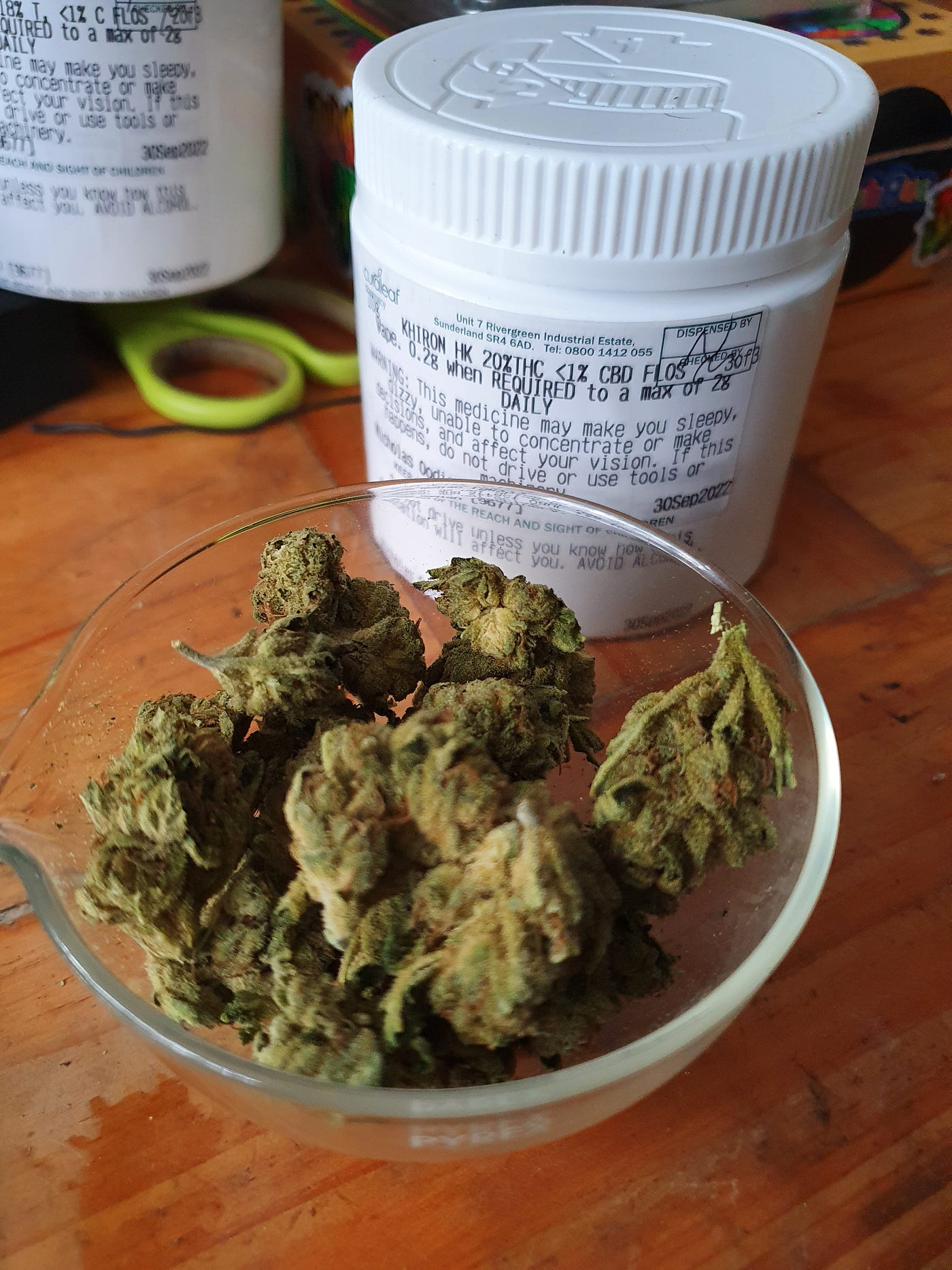On October the 2nd this year, 2022, I received six 10 gram pots of cannabis flower, delivered to my door by a courier. This wasn’t from an Instagram account advertising loud dank or from a mate posting me a share of his home-grown crop. This was from a registered company operating in the UK.
After being an illegal weed consumer for over 36 years, and because I have a chronic illness, I became eligible for a private cannabis prescription.
Globally laws on cannabis use have been changed and are changing because public opinion has changed. Information campaigns, medical research, green-media, and grass roots activism are breaking the taboo around cannabis and advancing medical recognition and de-stigmatising recreational use.
Medical use of cannabis was legalised in the UK on 1 November 2018, after the case of a young epileptic boy who benefited from using cannabis brought increased public attention to the issue. The boy, Billy Caldwell experienced significant improvement in his condition after he began using cannabis, but was initially not allowed to continue their treatment under UK law. This led to increased public outcry, as Billy who was hospitalised with life-threatening seizures after his medication was confiscated by authorities.

In June 2018, the then Health Secretary, Sajid Javid, announced his support for the medical use of cannabis, and that a review would be undertaken to study changes to the law.
On July the 26th 2018, Home Secretary, Sajid Javid, announced that cannabis products would be made legal for patients with an “exceptional clinical need”, and that cannabis would be moved from a Schedule I classification to Schedule 2. On the 11th of October, the new provisions were officially presented and accepted in the House and the policy came into effect on the 1st of November 2018.
Because I have an illness that the government deems treatable by cannabis, I was able to speak to a private clinic about getting access to medical grade flower.
It didn’t take much effort to acquire, as I have a plethora of medical evidence, referral letters, and support documents relating to my conditions. exceptional clinical need.
After an initial consultation with a clinician, who has to be listed on the Specialist Register of the General Medical Council (via Zoom), I was prescribed two different strains. A buzzy, upstrain for daytime use and a mildly couch-lock evening strain.
I’m using a few different cannabis products at the moment. Sugar free edibles, vape pens, wax and shatter dabs, as well as cannabis flowers for dry vaping, all of which are illegal in this country because they have THC present in them.
Let me be clear, I had tried what was offered for my condition by various NHS GPs, and found that I suffered numerous side effects, and didn’t have any quality of life, due the sedative nature of the drugs prescribed.
To date, there’s been less than 10 individuals who have been prescribed cannabis products by the National Health Service. Nearly all of the medical cannabis patients in the UK hold private ‘scripts.
I strongly believe that full spectrum cannabis has benefited me where conventional treatments and medication hasn’t. The prescribed, irradiated product I’m vaping at the moment is fine, and to be honest a game-changer, purely because it is prescribed and legal. But I am still going to use products that have a full spectrum of terpenes and flavanoids, like FECO (full extract cannabis oil) and THC distillate edibles, which remain illegal.
I hope that one day we’ll see cheaper, better quality, non-irradiated, cannabis products for medicinal use, easily accessible to all. More importantly, I hope we see decriminalisation or better still, complete legalisation for recreational use.
Nico Abraxas







